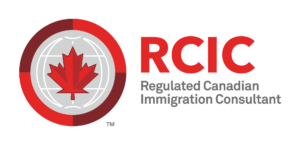Work
Home / Services / Work
Work Permit
Most foreign nationals who want to come to Canada to work must have legal authorization via a work permit. There are 2 types of work permits:
- Employer Specific Work Permit (Closed Work Permit)
- Open Work permit

Employer-specific work permit (Closed Work Permit)
An employer-specific work permit allows you to work for a specific employer/s according to the conditions on your work permit, which include:
- The name of the employer/s you can work for
- How long you can work
- The location where you can work (if applicable)
Before you apply for an employer-specific work permit, your employer must give you
- a copy of your employment contract
- one of the following:
- a copy of a LMIA
- an offer of employment number (for LMIA-exempt workers) –
- To
get this number, your employer must use the Employer
Portal.
- To
get this number, your employer must use the Employer
Portal.
A Labour Market Impact Assessment (LMIA) is a document from Employment and Social Development Canada/Service Canada (ESDC) that allows an employer to hire a foreign worker through the Temporary Foreign Worker Program (TFWP).
A positive LMIA will show that there is a need for a foreign worker to fill the job. It will also show that no Canadian worker or permanent resident is available to do the job. A positive LMIA is sometimes called a confirmation letter. Employers who need a LMIA must apply for one.
Open Work Permit (OWP)
An open work permit allows a person to work for any employer in Canada without restrictions except for one that i) is listed as ineligible on the list of employers who have failed to comply with the conditions, or ii) regularly offers striptease, erotic dance, escort services or erotic massage.
You can apply for an OWP if
- you are an international student who graduated from a DLI and are eligible for the PGWP
- are a student who’s no longer able to meet the costs of your studies (destitute student)
- have an employer-specific work permit and are being abused by your employer or considered a vulnerable person in Canada
- applied for permanent residence in Canada
- are a dependent or family member of someone who applied for permanent residence
- are the spouse, common-law partner or dependent child of a low- or high-skilled worker
- are the spouse or common-law partner of an international student enrolled in a master’s or doctoral degree program at a university or polytechnic institution in Canada
- are the spouse or common-law partner of an applicant of an economic pilot program
- are a refugee, refugee claimant, protected person or their family member
- are under an unenforceable removal order
- are a temporary resident permit holder
- are a young worker participating in special programs
Find out if you can apply for a work permit
Applicants also have other options if they want to apply for a Canadian Work Permit. Learn More
